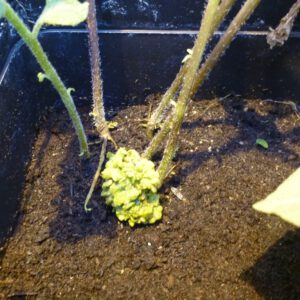Den Hartigh trades a wide range of potato varieties. Through years of knowledge of and experience in various markets, we know the most important properties. In addition to yield, resistances to diseases and pests are also an important starting point. In our breeding program, crossing such resistances into new seedlings is one of the objectives.
Wart
Resistances and diseases: wart
Resistances by market
For the organic market, Den Hartigh has developed potato varieties with resistance to Phytophthora, for the export market strongly common scab resistant varieties with a high yield and for the French fries market varieties that have good resistances against potato cyst nematodes, wart and tobacco rattle virus. The newly developed varieties are strong against virus Y, which is appreciated by our seed producers.
Wart
Wart has a quarantine status. This disease can modify leaves, stem, stolon and tubers. The presence of the fungus which is causing the disease in the soil has major consequences for a producer. When wart disease is found on a plot, there will be a ban to use this plot, not only for growing potatoes but also other bulb, tuber and root crops, tree nursery and ornamental crops are banned.
Resistance and susceptibility
The fungus spreads mainly through seed potatoes and adhering soil and is divided into several races: F1, to which absolutely resistance exits and found in the vast majority of varieties and F2, F6,and F18. Resistance to races F2 and F6 is available in some varieties. It is displayed at relative susceptibility. Maximum propagation of the wart disease physios F2 and F6 on the variety in question is considered in relation to a susceptible standard variety. The numbers 1 to 9 represent the susceptibility, with a 1 being very susceptible and a 9 highly resistant.
Resistance to the races F2, F6 does not work against race F18. For this purpose, another resistance is available which is also represented by relative susceptibility. Most of Den Hartigh’s varieties are resistant to race F1. In addition, we also trade varieties that are resistant to physio F6: Gaya (9), King Russet (8) and Amanda (10).

